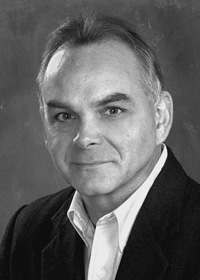
A Handbook for Students Applying for Scholarships and Graduate Study
For students, personal statements and application essays are among the most difficult and most important documents they will ever write. They are difficult because they require both introspection and polish, and important because the writer may literally be competing for tens of thousands of dollars in a huge field of outstanding candidates. A writing tutor who has provided guidance on more than a thousand graduate applications, Joe Schall advises you on how to be competitive but not cocky, informed but not formulaic, openly creative yet professional. As you consider ways to write your way into your future, count on this website to help you grow and thrive in the process.
About the Author
Joe Schall was the Giles Writer-in-Residence for the College of Earth and Mineral Sciences at Penn State from 1988 until 2008. He received an M.A. in English from Penn State in 1988 and a B.S. in English Education from Juniata College in 1981. He has won numerous honors for his writing and teaching, including the Bobst Award for Emerging Writers from New York University and the Wilson Award for Outstanding Teaching from Penn State’s College of Earth and Mineral Sciences. His publications range from short stories to style guides (Writing Recommendation Letters Online and Style for Students Online). He has published articles about writing in a wide variety of magazines, including Graduating Engineer and Computer Careers, Writers' Forum, and Academe. By invitation, he has previously taught writing workshops on the subjects of his style guides at over 20 schools, including Pepperdine University, MIT, Roanoke College, SFSU, and the University of Southern Mississippi. Joe Schall is currently a Health Communications Specialist for the National Institute for Occupational Safety and Health.
Features of this Manual
- Internal search engine.
- Printer-friendly chapters and pages.
- “Self-Study” links to additional resources and recommended websites.
- Sample documents available as PDFs.
Permission to Use Material from this Manual
This manual is available for free use by students, faculty, and other interested parties, and the intention is to make this material as widely available as possible. For those interested in obtaining permission to use any material herein, the rules are spelled out by the creative commons license.
Comments on this Manual
Comments on this manual are welcomed and can be directed to the author at schall@ems.psu.edu.